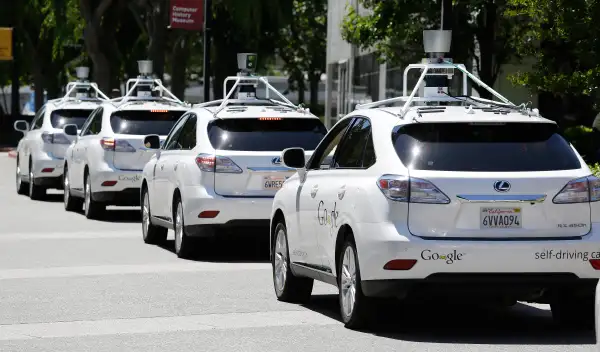In a World of Self-Driving Vehicles, Car Ownership Would Plunge

If Google has its way, self-driving cars could be on the road and part of the mainstream perhaps as soon as 2020. It's hard to say exactly how such a scenario would impact businesses and consumer behaviors, but theoretically the advent of self-driving vehicles could be truly transformative, including but not limited to the arrival of driverless Uber car services that would make it easier and cheaper than ever to order a ride, and even the potential elimination of drunk driving.
What about car ownership? Some of the research on the topic holds that driverless cars would put more vehicles on the road, but a new study suggests that self-driving vehicles could dramatically reduce car ownership, by cutting down on the number of cars needed in any one household.
Michael Sivak and Brandon Schoettle at the University of Michigan Transportation Research Institute (UMTRI) looked at patterns of car usage in American households and concluded that self-driving automobiles with a "return-to-home" mode "could reduce the number of vehicles needed within a single household by allowing sharing of vehicles in situations where it is not currently possible." The idea is that the drivers in many households have little "trip overlap," the term used to describe times during the day when more than one driver needs a vehicle. In households where there isn't much overlap, a self-driving vehicle could, for example, bring one spouse to work early in the morning, then return home on its own to pick up the other in order to make a separate run to a different workplace, drop off kids at school, help run errands, etc., before retrieving that original dropoff at the end of the work day.
Just how big of a dent could that scenario make in car ownership? The average number of vehicles per American household is currently 2.1. According to the study, that could dip as low as 1.2, a reduction of 43%, if self-driving cars become a reality and people take advantage of it as expected.
Another eye-opening set of data show that, based on analysis of behavior and overlapping trips of family members, 42% of American households need two cars today. If and when self-driving models are here, however, only 15% would need two vehicles available. The need for three or more cars would plunge as well, from 26.5% today to less than 2% in an era of self-driving cars that could "return-to-home" when the need arose.
How likely is it that self-driving vehicles would cause car ownership rates to drop by nearly half, as projected? No one really knows. The authors of the UMTRI study acknowledge another potential scenario in which "individuals who are currently unable, unwilling, or prohibited from operating a vehicle become users of self-driving vehicles, [possibly bringing about] increased demand for vehicles and increased traffic volumes."
Then again, it's arguable that the theoretical projected decline in car ownership highlighted in the study could be on the low side. After all, the study doesn't take into account the likelihood of households deciding in the future to book on-demand driverless cars when the need arises instead of owning one or more of their vehicles. There are too many unknowns and moving parts to truly see how this will all play out.
So where does that leave us? In some yet-to-be-determined way, "We're on the cusp of a major mobility transformation," the car experts at Edmunds.com noted, referring to the new UMTRI research. "This study offers a fascinating glimpse into the not-so-distant future."
It's a future that may come to view three-car (or even two-car) garages as sorta useless.
